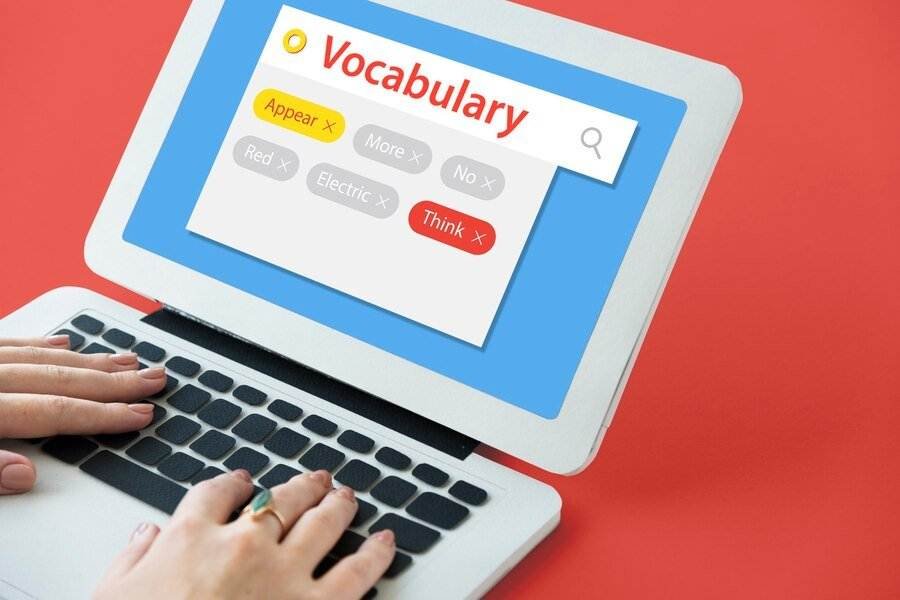Essential Hindi Vocabulary You Must Know to Pass the NAATI CCL Exam
Table of Contents
ToggleThe NAATI CCL (Credentialed Community Language) Hindi exam is crucial for many migrants aiming to score extra points toward permanent residency in Australia. The exam evaluates your ability to interpret conversations between English and Hindi in real-life scenarios. A key component of success in this exam is mastering essential vocabulary across various fields, including legal, medical, educational, and everyday situations. In this blog, we’ll cover the must-know vocabulary and practical strategies to help you feel confident when tackling dialogues in the NAATI CCL Hindi exam.
1. Legal Vocabulary
In NAATI CCL dialogues, legal scenarios are common, covering topics like contracts, court orders, and rights and obligations. It’s crucial to be comfortable with legal terminology in both languages.
- English: “Bail,” “Custody,” “Contract,” “Warrant,” “Defendant,” “Plaintiff,” “Evidence,” “Appeal,” “Trial,” “Sentence,” “Fine.”
- Hindi: “जमानत (Jamānat),” “हिरासत (Hirāsat),” “अनुबंध (Anubandh),” “वारंट (Wāraṇṭ),” “प्रतिवादी (Prativādī),” “वादी (Vādī),” “सबूत (Sabūt),” “अपील (Apīl),” “मुकदमा (Mūkadma),” “सजा (Sajā),” “जुर्माना (Jurmānā).”
Tips for mastery:
- Make flashcards: Use flashcards for English and Hindi legal terms and practice translating each term accurately.
- Study contextual usage: Legal terms may have subtle nuances depending on the context, so be sure to understand their application through examples and practice.
2. Medical Vocabulary
Healthcare is another commonly tested area. You may encounter scenarios involving medical appointments, prescriptions, diagnoses, or general health advice.
- English: “Diagnosis,” “Prescription,” “Symptoms,” “Allergy,” “Vaccination,” “Treatment,” “Surgery,” “Emergency,” “Pharmacy,” “Blood Pressure.”
- Hindi: “निदान (Nidān),” “नुस्खा (Nuskha),” “लक्षण (Lakṣaṇ),” “एलर्जी (Alerji),” “टीकाकरण (Tīkākaraṇ),” “उपचार (Upacār),” “शल्य चिकित्सा (Shalya Chikitsā),” “आपातकाल (Āpātkāl),” “औषधालय (Auṣadhālay),” “रक्तचाप (Raktacāp).”
Tips for mastery:
- Real-Life scenarios: Practice vocabulary using real-life dialogues, such as doctor-patient interactions, to get familiar with the context.
- Engage with medical content: Watch healthcare-related shows or read articles in Hindi and English to strengthen your familiarity with medical terms.
3. Educational Vocabulary
Educational settings might include conversations between teachers, students, and parents on subjects like academic progress, assessments, and school policies.
- English: “Curriculum,” “Assessment,” “Attendance,” “Discipline,” “Homework,” “Progress Report,” “Scholarship,” “Admission,” “Extracurricular.”
- Hindi: “पाठ्यक्रम (Pāṭhyakram),” “मूल्यांकन (Mūlyāṅkan),” “उपस्थिति (Upasthiti),” “अनुशासन (Anuśāsan),” “गृहकार्य (Gṛhakārya),” “प्रगति रिपोर्ट (Pragati Riporṭ),” “छात्रवृत्ति (Chātravṛtti),” “प्रवेश (Praveś),” “अतिरिक्त पाठ्यक्रम (Atirikt Pāṭhyakram).”
Tips for Mastery:
- Focus on School-Related contexts: Imagine school-based conversations, such as teacher-parent meetings, to practice using the terms.
- Utilize online resources: Access academic resources in Hindi and English to build your vocabulary and learn how these terms are used in educational settings.
4. Employment Vocabulary
Many dialogues in the NAATI CCL Hindi exam cover workplace scenarios, including discussions on job roles, workplace rights, and employment conditions.
- English: “Salary,” “Work Hours,” “Overtime,” “Leave,” “Position,” “Promotion,” “Contract,” “Resignation,” “Performance Review,” “Benefits.”
- Hindi: “वेतन (Vetan),” “कार्य घंटे (Kāry Ghantē),” “अतिरिक्त समय (Atirikt Samay),” “छुट्टी (Chhuṭṭī),” “पद (Pad),” “पदोन्नति (Padonnati),” “अनुबंध (Anubandh),” “इस्तीफा (Istīfā),” “प्रदर्शन समीक्षा (Pradarśan Samīkṣā),” “लाभ (Lābh).”
Tips for mastery:
- Role-Play exercises: Role-play conversations related to workplace scenarios, such as interviews or discussions with HR, to strengthen your application of the terms.
- Read job descriptions: Reviewing job postings in both languages can also help you familiarize yourself with employment-related vocabulary.
5. Financial Vocabulary
Financial terms often come up in dialogues about banking, loans, mortgages, and budgeting.
- English: “Account,” “Deposit,” “Loan,” “Interest,” “Mortgage,” “Balance,” “Transaction,” “Savings,” “Investment,” “Debt.”
- Hindi: “खाता (Khātā),” “जमा (Jamā),” “ऋण (Ṛṇ),” “ब्याज (Byāj),” “बंधक (Bandhak),” “शेष (Śeṣ),” “लेन-देन (Len-Den),” “बचत (Bachat),” “निवेश (Niveś),” “कर्ज (Karj).”
Tips for mastery:
- Listen to Financial news: Financial news channels or podcasts in Hindi and English can expose you to terms in use.
- Practice with scenarios: Try interpreting dialogues related to common banking interactions to understand how these terms come up in practical settings.
6. General Everyday Vocabulary
Conversations in the NAATI CCL Hindi exam often involve everyday scenarios such as shopping, transportation, family, and social interactions.
- English: “Grocery,” “Shopping,” “Public Transport,” “Ticket,” “Reservation,” “Family,” “Friends,” “Emergency,” “Address,” “Directions.”
- Hindi: “किराने का सामान (Kirānē Kā Sāmān),” “खरीदारी (Kharīdarī),” “सार्वजनिक परिवहन (Sārvajanik Parivahan),” “टिकट (Ṭikaṭ),” “आरक्षण (Ārakṣaṇ),” “परिवार (Parivār),” “दोस्त (Dost),” “आपातकाल (Āpātkāl),” “पता (Patā),” “दिशा (Diśā).”
Tips for Mastery:
- Use vocabulary in daily life: Incorporate these words into your daily conversations to help you retain them better.
- Practice descriptive dialogues: Describe your routine in both languages, emphasizing these commonly used words to build your comfort level.
7. Emergency Vocabulary
Emergency situations may involve topics such as calling for help, providing medical information, or reporting an incident.
- English: “Ambulance,” “Police,” “Fire Brigade,” “Help,” “Injury,” “First Aid,” “Lost,” “Missing,” “Incident,” “Danger.”
- Hindi: “रोगी वाहन (Rogi Vāhan),” “पुलिस (Pulis),” “अग्निशमन दल (Agnishaman Dal),” “मदद (Madad),” “चोट (Choṭ),” “प्राथमिक चिकित्सा (Prāthamik Chikitsā),” “खो गया (Kho Gayā),” “लापता (Lāpatā),” “घटना (Ghaṭnā),” “खतरा (Khatra).”
Tips for mastery:
- Engage in role play: Practice mock conversations about emergencies, such as calling for assistance, to familiarize yourself with these critical terms.
- Study First-Aid guides: Reading first aid manuals or emergency guides in both languages can also improve your command over relevant terms.
Conclusion
A well-rounded vocabulary is essential for excelling in the NAATI CCL Hindi exam. With a focus on key areas like legal, medical, educational, and everyday terminology, you can develop the confidence needed to tackle various scenarios. Incorporate these terms into your practice routine, and simulate real-life dialogues to reinforce your learning. The key is consistent practice and familiarizing yourself with contextual uses of these terms.
With the right preparation, you’ll be well-equipped to interpret accurately and effectively in the exam. Good luck!







